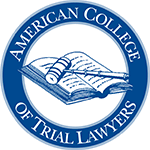Defense of Atlanta Public Schools probe quite unique
Fulton County Daily Report
GBI, Bowers turn up heat in APS PROBE
Some school employees have been asked to take lie detector tests; Bowers says teachers who tell truth won’t be prosecuted
Monday, November 08, 2010
By R. Robin McDonald, Staff Reporter
Special investigators appointed by Gov. Sonny Perdue to determine whether widespread cheating occurred on standardized tests in Atlanta’s public schools are asking teachers and administrators to take lie detector tests, running criminal background checks on them and issuing subpoenas to compel them to submit to interviews, according to the state’s two education associations.
Attorneys hired by the Georgia Association of Educators to represent teachers and principals say that the methods being employed by the governor’s investigators demonstrate that the cheating probe is now a full-fledged criminal investigation.
Former state Attorney General Michael J. Bowers told the Daily Report on Thursday, “There may well be some criminal prosecutions.” Perdue appointed Bowers and former DeKalb District Attorney Robert E. Wilson in August to run the investigation. Perdue appointed former AG chief investigator Richard L. Hyde as the team’s investigator.
With the assistance of 50 investigators from the Georgia Bureau of Investigation, the team has interviewed more than 500 APS teachers and principals. Bowers said that investigators anticipate conducting at least another 250 interviews, and attorneys representing APS employees say they have been told that as many as 1,200 interviews may be conducted.
Possible criminal charges that APS teachers and school administrators face include making false statements to a law enforcement officer and altering public documents, both felonies under Georgia law, Bowers said.
The governor’s investigators are issuing subpoenas to APS employees under a state law granting investigative powers to the state attorney general. Failure to obey a subpoena may be punished by contempt of court.
Decatur attorney J. Tom Morgan, a former DeKalb district attorney who is representing APS during the investigation, referred all questions to APS.
In a recent interview with The Atlanta Journal-Constitution, APS school superintendent Beverly Hall said, “State investigators, armed with subpoena power and the threat of perjury, will discover if there is evidence of test-tampering. APS is fully cooperating in that probe, and if educators are found to have altered test materials, we will deal with them forcefully, as will legal authorities.”
APS spokesman Keith Bromery told the Daily Report he was not aware that GBI agents were asking school system employees to take lie detector tests.
“A person who is under investigation enjoys some rights, some privileges,” he said. “I don’t know if legally people can be compelled to undergo that.”
And, he said, he has not heard whether anyone has been accused of insubordination for refusing a lie detector test. “As far as we are concerned, as far as we know,” he said, “everyone is cooperating.”
Decatur attorney Robert G. Rubin, one of the attorneys retained by the GAE to represent APS employees, said bluntly, “It’s a criminal investigation. There are no two ways around it. I don’t know what crimes they’re thinking have potentially been committed, but I’m treating it as a criminal investigation.”
Rubin said that the governor’s investigators and Hall have placed APS employees in a double bind. Hall has told employees to cooperate with investigators or face termination or insubordination charges before the Georgia Professional Standards Commission that could cost them their teaching certificates.
Hall’s most recent memo, issued Oct. 26, directs employees to “provide answers to questions that share all truthful information you may know, or you will risk being found insubordinate.
“The memo also states that any employee “who fails or refused to fully cooperate with the special investigators may be subject to formal disciplinary action, including termination, and reported for breach of the Professional Standards Commission Code of Ethics for Educators.”
School employees also face criminal charges if they make false or inaccurate statements to the governor’s investigators, Bowers said.
“There is a bind,” said Rubin. “There are employees who are in the system who want to cooperate. But if a GBI agent simply came to their door … and they refused to talk, that would be deemed insubordination. The concern is with every client who is interviewed by a law enforcement agent. Just because they are innocent and haven’t done anything wrong doesn’t mean that what they say won’t be misconstrued, taken the wrong way, or that they won’t be subjected to interrogation pressures where they say things that really aren’t true because of the pressures of the situation.”
Rubin said the tactics employed by the governor’s investigators resemble those commonly employed during a criminal drug investigation where “the guy on the corner selling one hit of crack” is pressured to implicate “the higher-ups bringing in the product.”
“That’s right. That’s what’s occurring,” said GAE general counsel Michael T. McGonigle. “I don’t think they are making any secret about it.”
Michael E. Kramer, an attorney with Buckley & Klein in Atlanta who is representing five school principals, said that the resulting risks to the educators under scrutiny “are multiple.”
“One is the potential for criminal prosecutorial action,” he said. “The other is their employment with the school district, their jobs, that they can be terminated or not renewed. The third thing is their teaching certificate. … Obviously, for anyone, whether they are guilty or innocent, it’s going to be a threatening process.”
And, he added, “We also know that in very serious matters, innocent people can be accused and convicted of things that they didn’t do. And so the question is how to make this process so that it’s fair and likely to lead to whether there was any cheating of any kind, … what schools that it occurred in and who was responsible.”
Kramer said some GBI agents have conducted aggressive interviews. He cited one interview where an APS employee was told she could lose custody of her children to a state social services agency if she didn’t cooperate. He also said that teachers are not always being told by the GBI agents who interview them that they can ask for a lawyer without running afoul of Hall’s directives.
“They’re not being told of their right to have legal representation, and, frankly, our view is that they should be told that,” Kramer said.
GBI spokesman John Bankhead acknowledged Friday that agents are running aggressive interviews. “That’s what they do,” he said. “This is a criminal investigation. … Agents are trained to get to the truth. When they feel teachers are not telling them the truth, they become more aggressive. That’s standard operating procedure.”
Bankhead said that GBI agents have advised teachers prior to interviewing them that they will not be prosecuted if they tell the truth. “They are telling the teachers that we are not interested in prosecuting teachers,” he said. “As long as they tell the truth, there shouldn’t be any concerns.”
Bankhead also said that the GBI agents are not discouraging teachers from retaining lawyers but are not advising them they have a right to counsel because, “They’re not suspects. … They are not looking to charge them with anything.”
The GBI spokesman said there is no reason to believe agents are conducting interviews in an unprofessional manner. “But these teachers are not used to the techniques that are involved in a criminal investigation,” he said. “There are techniques we use to try to get to the truth, particularly when an agent feels someone is lying to them. … We don’t sit there when we think they are lying to us and sing ‘Kumbaya.'”
McGonigle said that APS employees were ambushed when teams of GBI agents fanned out through the schools in a single afternoon last month and began interviewing teachers with no advance warning.
During some of those interviews, McGonigle said, “They were badgering the employees.” He said he was told of one instance where a school employee who wanted a lawyer present was asked by an GBI agent, “Who told you that you could have an attorney?”
McGonigle cited another instance in which a GBI agent was questioning an elementary school teacher and used “inappropriate, unprofessional and profane language.”
When the teacher said she had no knowledge of what the agent was asking, the agent replied, “I’m sick of this sh-t. You’re all lying. I’m sick of this sh-t,” McGonigle said.
McGonigle also said that the governor’s investigators are using information gleaned from criminal background checks “as leverage to force people into making admissions.”
McGonigle also said he has heard from one GAE attorney that interviews are being tape-recorded without the knowledge either of those being interviewed or their counsel. Georgia law requires only that one party to a conversation know that it is being recorded.
The attorney learned that the interview was being recorded only when she asked, McGonigle said. “She was livid.”
Bowers said that if somebody wants an attorney, “To the best of my knowledge … we will stop the interview, they can go get themselves a lawyer and come back and call us and we will reschedule. I have been in interviews myself where I have said those words, almost exactly.”
Whether teachers and administrators will be considered insubordinate if they decline a request to take a polygraph exam is less clear. “We haven’t even thought about that,” said Bowers. “I doubt it. We haven’t made a decision about that.”
APS spokesman Bromery said that he asked the school system’s legal department whether employees would be considered insubordinate if they refuse to take a polygraph but had received no reply by press time Friday. Bowers called the use of polygraphs by his investigators “an important tool because it helps you ferret out the truth. That’s our principal job. We’re not using it for admissible evidence. We’re using it as an investigative tool.”
Bowers also acknowledged that investigators have recorded some interviews without alerting those being interviewed, a permissible practice under state law.
“Our investigation is limited to what the governor has told us to do: get at the truth about the CRCT … and get rid of teachers who acted improperly by changing answers they shouldn’t have. … Where there are teachers who are engaged in misconduct, we want to make sure they get referred to the proper authorities to do whatever it is appropriate to do with respect to their teaching careers. There may well be some criminal prosecutions. I can’t tell you for sure or guarantee that but that’s certainly a possibility. That’s why the GBI is there.”
Professional Association of Georgia Educators spokesman Tim Callahan said that APS employees who are PAGE members have been asked to take lie detector tests but have not been threatened with insubordination or the loss of their jobs if they refuse.
“Our attorney has advised if they feel comfortable and have nothing to hide, they ought to go ahead and take the poly,” he said, adding that a PAGE lawyer will accompany APS employees to a polygraph exam at their request.
Callahan also said that the governor’s investigators have given PAGE members time to get a lawyer if they asked for a delay in order to retain counsel.
GAE has taken the opposite approach on polygraph exams. We advise folks not to submit to polygraphs. Period,” McGonigle said. Rubin said that none of his APS clients have been asked to take a lie detector test. But he called polygraph exams “inappropriate.”
“They’re not admissible as evidence. There is no point in it.”
Rubin also said that he is researching whether the governor had the authority to invest his investigators with subpoena power. “We’ve not crossed that bridge either,” he said. “We’re researching whether we can move to quash a subpoena. … I don’t know what authority they have pursuant to a governor’s appointment.”








